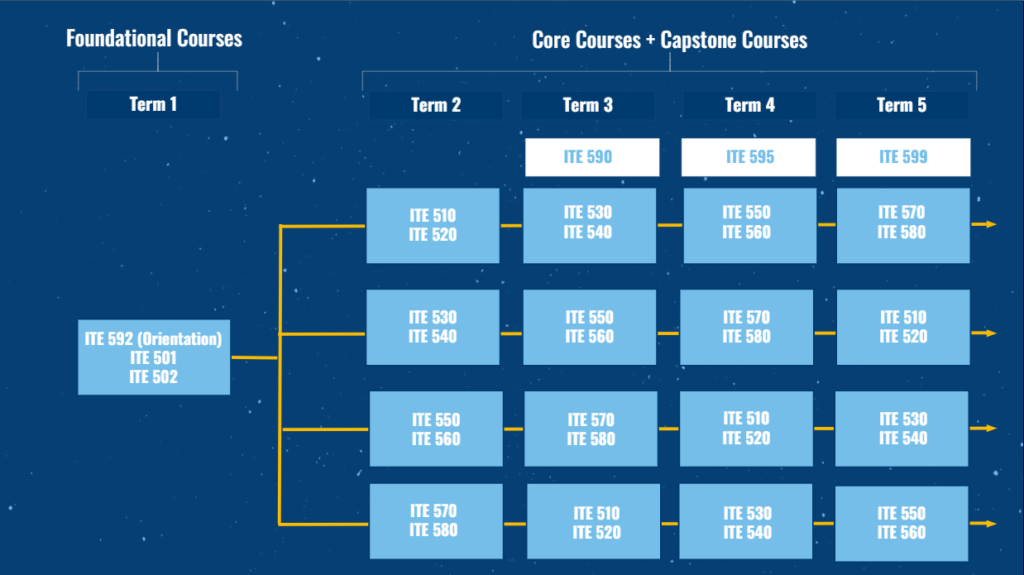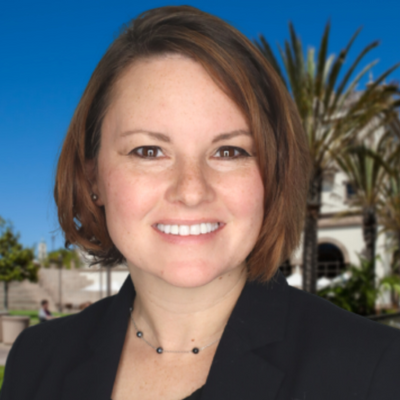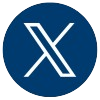Student Success Center
MS in Innovation, Technology and Entrepreneurship
Welcome!
As an online student, most of your interactions with the university will be done through various websites. For example:
- You’ll use your USD Email Address for all university-related communications.
- You’ll use Canvas for all of your coursework and assignments. See Canvas Tips and Tricks page.
- You’ll use your MySanDiego Portal for tuition payments and to access most campus resources.
- You’ll use this site, your Student Success Center, to get specific information about textbook information, deadlines, and more!


Your Academic Director
Jeff Teza, MBA, BSEE
(619) 322-4622
IMPORTANT DATES
Below is a list of significant dates regarding the registration process, payment deadlines, and other important academic and program deadlines.
Fall 2024 Dates and Deadlines
| Important Dates | Date |
|---|---|
| Application Deadline | August 2, 2024 |
| Registration Opens | July 1, 2024 |
| Registration Deadline | August 16, 2024 |
| Orientation Course Due Date | August 30, 2024 |
| Last Day to Drop with 100% Refund | September 2, 2024 |
| Payment Due Date | September 3, 2024 |
| Semester Begins | September 3, 2024 |
| First Course Start Date | September 3, 2024 |
| Last Day to Withdraw from Course A | September 30, 2024 |
| First Course End Date | October 21, 2024 |
| Second Course Start Date | October 22, 2024 |
| First Course Final Grade Submission Due Date | November 4, 2024 |
| Last Day to Withdraw from Course B | November 18, 2024 |
| Second Course End Date | December 9, 2024 |
| Semester Ends | December 9, 2024 |
| Second Course Final Grade Submission Due Date | December 23, 2024 |
Spring 2024 Dates and Deadlines
| Important Dates | Date |
|---|---|
| Application Deadline | December 1, 2023 |
| Registration Opens | November 1, 2023 |
| Registration Deadline | December 15, 2023 |
| Orientation Course Due Date | January 5, 2024 |
| Last Day to Drop with 100% Refund | January 8, 2024 |
| Payment Due Date | January 9, 2024 |
| Semester Begins | January 9, 2024 |
| First Course Start Date | January 9, 2024 |
| Last Day to Drop with 95% Refund/ Drop Deadline | January 12, 2024 |
| Last Day to Withdraw from Course A | February 5, 2024 |
| First Course End Date | February 26, 2024 |
| Second Course Start Date | February 27, 2024 |
| First Course Final Grade Submission Due Date | March 11, 2024 |
| Last Day to Withdraw from Course B | March 25, 2024 |
| Second Course End Date | April 15, 2024 |
| Semester Ends | April 15, 2024 |
| Second Course Final Grade Submission Due Date | April 29, 2024 |
Summer 2024 Dates and Deadlines
| Important Dates | Date |
|---|---|
| Application Deadline | April 8, 2024 |
| Registration Opens | March 4, 2024 |
| Registration Deadline | April 19, 2024 |
| Orientation Course Due Date | May 3, 2024 |
| Last Day to Drop with 100% Refund | May 6, 2024 |
| Payment Due Date | May 7, 2024 |
| Semester Begins | May 7, 2024 |
| First Course Start Date | May 7, 2024 |
| Last Day to Drop with 95% Refund/ Drop Deadline | May 10, 2024 |
| Last Day to Withdraw from Course A | June 3, 2024 |
| First Course End Date | June 24, 2024 |
| Second Course Start Date | June 25, 2024 |
| First Course Final Grade Submission Due Date | July 8, 2024 |
| Last Day to Withdraw from Course B | July 22, 2024 |
| Second Course End Date | August 12, 2024 |
| Semester Ends | August 12, 2024 |
| Second Course Final Grade Submission Due Date | August 26, 2024 |
Download a pdf of your academic calendar
Class Registration Directions
You have most likely already filled out an Enrollment Agreement, which enables our team to register you for classes each term. No further action is required on your part.
If you are not able to register for both of your courses in a given term, please contact your program coordinator immediately. This often happens for students who need to take a leave of absence.
Textbook information
Students are required to have their textbooks on hand by the first day of class. Unless otherwise specified, students may select any vendor they prefer (such as Amazon.com, Half.com, Alibris.com, etc.) to purchase their course materials. In the event a specific vendor is required, it will be specified in the course materials list. The best way to ensure that you have the correct book is to search by the ISBN number(s) listed on the book list.
Physical copies of books are not on hand at the USD Torero Store. The USD Torero online store does offer price comparisons for different online vendors for some books.
Although all textbooks for all courses are listed, students only need to purchase the items for the classes they are taking for the semester.
Digital Inclusive Access (IA) – Integrated VitalSource Textbooks
If your course is indicated to have a “Digital Inclusive Access” textbook, you do have the option to use the integrated Vitalsource e-textbook without needing to purchase a textbook through an outside vendor. For more information, view the “Digital Inclusive Access” FAQs document.
- Students are able to access the e-textbook directly in the course without worrying about purchasing the wrong version or textbook!
- If your course is indicated as using “Digital Inclusive Access” on the textbook list, please note that you must opt-out within the first 7 days of each course to avoid being charged for the guaranteed-lowest price textbook.
- If you do intend to use “Digital Inclusive Access”, no further action is required after you create a Vitalsource account.
- No refunds can be issued once the textbook charge has been assessed.
By using Vitalsource e-Textbooks, students are able to use study tools in Bookshelf such as highlighting, printing limited pages/chapters, sharing notes, and using the Bookshelf CoachMe tool to test their learning while they read.
PAYing for your program
Tuition at USD is billed per semester, not per course. Payment (or enrollment in an official USD payment plan) is always due by the first day of the semester. Students may not carry balances from one semester to the next.
Accounts with outstanding balances after the official payment due date may be subject to course cancellations/removal or a student account hold during the semester; related holds can prevent upcoming registration, graduation, or obtaining transcripts.
Remember: tuition is always due by the first day of each semester.
Program Tuition
Once you have been registered for your courses, your student account will reflect the appropriate tuition costs according to your program. Your program’s tuition is the following:
- Per Unit (classes are typically 3-units) = $925
- Per Semester (assuming 6-units per semester) = $5,550 / $6,475 in the last three semesters
- Total Program Cost (including 5 semesters) = $30,525
Students who need to re-take or withdraw from a course may need to pay additional fees according to the Refund/Drop Deadline policies listed in your Student Handbook.
If you have any questions about your Student Account, please reach out to the One Stop Center via email at [email protected] or phone at 619-260-2700. All costs and fees are subject to change and are based on the academic year of enrollment.
Refund Policy
Students will be registered for their prescribed courses each semester. All courses must be dropped prior to the first day of the semester to receive a 100% tuition refund and within the first three days of the start date of the semester to receive a 95% tuition refund. No refund (reversal of tuition) will be provided after the third day of the semester for any class.
DEGREE PROGRESS And COMMENCEMENT
DegreeWorks
You can track your progress toward earning your degree using the Degree Works feature in your MySanDiego student portal. Degree Works shows you which courses you have completed, grades, cumulative GPA, any outstanding graduation requirements, and more!
To access Degree Works:
- Log in to your MySanDiego student portal.
- Under the “Torero Hub” tab, click on “My Academics.”
- On the right-hand side under “My Academic Resources”, click on “Degree Works.”
Petition to Graduate
Submitting your petition to graduate is a requirement for every student. About a semester before your final term, you will be reminded by your Program Coordinator to submit your petition to graduate. Once completed, your Academic Coordinator will review your academic record and contact you if there are any outstanding requirements or issues.
Commencement and Diploma Details
If you are planning on participating in the commencement ceremony (which means walking in your cap and gown here on campus), you will be invited to come to the University of San Diego in the month of May to participate in the ceremony. Commencement details and information will be sent from your Student Success Team around the month of February. Please note, there is only one commencement ceremony each academic year. Fall graduates will be invited to the commencement ceremony the May after they graduate, while Summer graduates will be invited to the commencement ceremony the May before they graduate.
The registrar will process their final audit of the degrees 6-8 weeks after grades are posted for your final semester. Once the degree is conferred in the system, the Registrar will order your diploma from the vendor and the vendor will send it to you directly to the address that was listed on your petition to graduate. Mailing time is an additional 6-8 weeks from the date of order, and you will likely receive your diploma in the mail in 3-4 months after you have completed your degree requirements. *Please note, if your mailing address changes after you submit your Petition to Graduate, please notify the Graduate Records office at (619) 260-2217 or [email protected].
Course Requirements
The 33 unit program will consist of thirteen courses. Courses will be offered year-round with three semesters every year; Spring, Summer, and Fall. Each semester will last 14 weeks. Students will take two courses per semester. Courses will run for seven weeks each with a one or two-week break in between semesters. This intensive format will allow students to focus on one course at a time and to still complete the degree program in 20 months.

Course Titles and Descriptions
ITE 501: Introduction to Communication and Networking
This course is designed to give students a foundational understanding of how electronic communication systems and networks are built, their capabilities, modern systems and how systems evolve. Students will learn the basic elements of both communication systems and networks using the industry terminology and key metrics that describe them. Students will be able to describe systems using the commonly used ISO “layered” abstraction model from physical connections through application-level information exchange. Building upon these core understandings the student will be able to describe the Internet and upcoming 5G Wireless networks using the terminology and tools they’ve learned. The course will also build upon the technical material to describe non-technical forces that have governed the history and evolution of systems such as Industrial competition, International and country-specific standards, backward compatibility and Security.
ITE 502: Introduction to Launching a Technology Business
This course has two primary objectives: (1) to provide an understanding of the formation and financing of startups and other small businesses, and (2) to provide a foundational understanding of the principles of finance and how they relate to business entities. Students will learn how funding from angel investors, venture capital funds, private equity funds, and corporate partners finds its way to entrepreneurial pursuits. Methods of valuation and the distinct concerns and points of view of the business and the potential investors will be analyzed and understood. Topics include the time value of money, risk and return, cost of capital, capital market efficiency, capital budgeting, cash flow projection, and firm valuation. Students will also learn the accounting principles, conventions, and concepts underlying financial reporting with the objective of developing the ability to analyze and interpret financial statements. At the end of the course, students will be led through a structured “hackathon” process that assists them in the process of converting an idea into a viable startup launch strategy.
ITE 510: Principles of Cloud and Mobile Computing
The objective of this course is to give students a foundational technical and business understanding of cloud and mobile computing. Students will learn about basic tradeoffs between Centralized vs. Distributed computing. They will understand how and why today’s computing, networking, and ubiquitous network technologies created today’s cloud computing paradigm. Students will understand how software operating systems, and “stacks”, evolved with the hardware to create changes in the software “unit of deployment” and how this drives efficiencies and lower prices. Students will analyze the business offerings of leading cloud computing suppliers and write a simple program to run on one of the cloud services. Finally, students will look at an example emerging application and describe “use cases” to identify considerations for partitioning the workload between central (cloud) and distributed (mobile or IoT) devices.
ITE 520: Principles of Connectivity
This course is an introduction to the emergence and proliferation of Internet of Things (IoT) and its impact on Cybersecurity. IoT has evolved well beyond its initial value proposition as a way to understand the flow of goods and services using RFID tags, to transforming physical systems consisting of sensors, actuators, and controllers into a complex network of connected devices. Along the way, simple open source computing engines with diverse I/O portfolios, such as Arduino® and Raspberry Pi®, as well as proprietary embedded processors such as the Qualcomm Dragon Board® have enabled the development and implementation of diverse IoT applications. In this course, students will be introduced to the history of IoT, key developments in the field, and advances enabled by IoT technologies in markets such as home and building automation, wearables and telemedicine, connected cars, and the smart grid.
The proliferation of IoT has also elevated concerns about cybersecurity, simply as a result of the explosion of access points in large networks. To understand such issues, students will be instructed on the fundamentals of cybersecurity, including understanding concepts of threats, vulnerabilities, and risk as the definition of “security” for a system. The course will examine types of security policy frameworks, provide definitions and examples of contemporary technical, administrative, and physical security controls setting the foundation for system engineering requirements. Common attacks and mitigations will be analyzed to provide an evaluation and comparison of common, contemporary
ITE 530: Entrepreneurship and Intrapreneurship
This course covers the process of identifying and quantifying market opportunities, then conceptualizing, planning, and either starting a new, technology-based enterprise or creating an innovation ecosystem within larger organizations. Topics include opportunity assessment, the value proposition, the entrepreneur, legal issues, entrepreneurial ethics, the business plan, the founding team, seeking customers and raising funds. Working in teams, students develop business models for a start-up projects that can launch as a standalone company or as an intrapreneurship team. Projects are experiential and require incrementally designing the business model and the product/service while talking to customers/stakeholders each week. The course is intended for students who want to start their own business upon graduation, further develop an existing business, be a member of a management team in a new enterprise, or better understand the entrepreneur and the entrepreneurial process.
ITE 540: Technology Management and Leadership
This course is intended for students to understand challenges in managing technology organizations, choosing from different models a leadership approach that best suits the needs of the company. The course explores the value of leadership in technology-intensive environments, and provides students with the tools necessary to inculcate a positive corporate culture and instill organizational processes and best practices most suited for the organization. Upon completion of the course, students will be able to (i) make changes in their style of leadership and improve their effectiveness in managing technology organizations, (ii) implement strategy and process within their organization to increase trust, transparency, and ownership, (iii) develop best practices for the organization that are aligned with technology needs, and (iv) institute metrics and Continuous Improvement Processes (CIP).
ITE 550: Big Data
This course is based on fundamental concepts of understanding business intelligence systems and data science techniques in a managerial approach. Course topics include big data concepts and technologies, statistical modeling and data visualization, business intelligence, decision support systems, data mining techniques, text and Web mining methodologies, future trends, and considerations in data science.
ITE 560: Industry 4.0
Industry 4.0 refers to the notion of a “digital factory,” where technology-based innovations transform almost every stage and aspect of how a product concept is brought to market. It covers the full range of topics from design tools and simulation environments that reduce gaps between product design and manufacturing, to planning and implementing (discrete and continuous) manufacturing lines based on Internet of Things (IoT) architecture and design principles. In this course, students will learn the fundamental concepts upon which Industry 4.0 has been developed, currently available design and simulation tools for products and services, the integration of IoT methods, devices, and controllers into manufacturing systems (also known as Industrial IoT, or IIoT), and the development of industrial TCP/IP communication and networking standards. In the final weeks of the course, students will discuss challenges and opportunities in the evolution of Industry 4.0 in the manufacturing sector. This part of the course will look at advanced robotics, software-as-service, the use of machine learning to organize and optimize global operations.
ITE 570: Sustainability
This course is designed to have students understand the fundamental concepts related to the design, installation, and maintenance of renewable energy systems. Students completing the course will have the skill sets required to analyze and design: 1) solar systems that use photovoltaics (PV); 2) small- and large-scale wind systems; 3) energy systems consisting of renewable generation and energy storage technologies; 4) smart grid technologies in transmission and distribution; and 5) building systems including lighting and HVAC. In addition, they will develop problem-solving skills in sustainable energy and energy efficiency and explore future trends in energy systems to understand opportunities and obstacles present in the creation of energy technology ventures.
ITE 580: Venture Financing and Exits
This course provides a comprehensive introduction to Mergers, Acquisitions, Divestitures, and Exits (M&A) from the perspective of the suitor and target business executive. The course will cover the key aspects of the M&A process including corporate strategy, IPO’s, target selection and screening, valuation, deal negotiation, legal concerns, due diligence, pre-closing activities, announcement, integration, and reporting.
ITE 590: Capstone Experience (Customer and Market Discovery)
As individuals rise in an organization, they get a wider view of responsibilities, Entrepreneurship Projects in Connectivity are proposed by individuals, small groups, or faculty members and must be approved by the MITE Faculty. Students will be required to apply knowledge and skills learned throughout the Innovation, Technology and Entrepreneurship curriculum.
ITE 595: Capstone Experience (Customer Validation and Product Strategy)
Entrepreneurship Projects in Connectivity are proposed by individuals, small groups, or faculty members and must be approved by the MITE Faculty. Students will be required to apply knowledge and skills learned throughout the Innovation, Technology and Entrepreneurship curriculum.
ITE 599: Capstone Project Experience (Business Modeling and Venture Launch)
Entrepreneurship Projects in Connectivity are proposed by individuals, small groups, or faculty members and must be approved by the MITE Faculty. Students will be required to apply knowledge and skills learned throughout the Innovation, Technology, and Entrepreneurship curriculum.
Student Resources
This list is helpful resources that will set you up for success. Haven’t written in APA formatting since your undergraduate program? We’ve got you covered! Want to know what type of computer you will need? No problem. We have listed helpful resources below.
Technical Requirements
You must own or have unrestricted access to a computer for this program. A fast Internet connection is also mandatory.
Courses will utilize a variety of technologies and multimedia. To complete course activities and to access course content, please verify that you have the following technologies and plug-ins available:
- Browser Plug-ins – Windows Media Player, QuickTime, Shockwave, Adobe Reader, and Java.
- Mozilla Firefox is the recommended browser.
- Microsoft Office is required. If you are using Office 2003 or earlier, download and install the Microsoft Office Compatibility pack.
- Speakers or headset – to listen to multimedia.
- Webcam – for recording video.
- Email – To contact your faculty.
- High-speed internet connection strongly encouraged (DSL or better)
Graduate Writing Expectations and Tips
All writing assignments must be formatted according to APA standards. Discussion posts must contain the appropriate APA citations. If you want additional writing support, we recommend Purdue Online Writing Lab (OWL@Purdue). In addition to general writing support, the website includes a special section dedicated to APA formatting guidelines.
Another helpful writing resource is the School of Leadership and Education Sciences (SOLES) Graduate Student Writing Center. Enrolled students can submit assignments for review by a writing professional.
Download Microsoft Office 365 (Free for USD Students)
Students at the University of San Diego are able to download Microsoft Office 365 for free! If you don’t have it already, you can download the Microsoft Office 365 suite using your USD student email.
TimelyCare – Telehealth for USD Students
TimelyCare is a provider of 24/7, no-cost telehealth services for USD students to address common conditions that can be safely diagnosed and treated remotely. TimelyCare services are available at no cost to the student. Services include:
- Live and on-demand self-care sessions (yoga, breathing, stretching)
- Access to on-demand counselors for emotional health support
- Access to schedule a session with a licensed counselor (up to 12 times per year)
- View the Nurturing Balance Webinar Recording to learn about more resources
MS-ITE Student Handbook
The handbook is where you can find information on academic expectations, drop and refund policy, technology requirements, curriculum, frequently asked questions, and more.
External Tutoring Resource
USD does not offer subject-specific tutoring resources, so students who are looking for tutoring support are encouraged to identify a tutor using Wyzant.com. Please note that Wyzant is not a USD-managed resource, so use them at your own discretion.
Student Code of Rights and Responsibilities for Graduate Students
It is the policy of the University of San Diego to adhere to the rules and regulations as announced in this brochure or other University Publications. The University nevertheless hereby gives notice that it reserves the right to expand or delete or otherwise modify this online publication whenever such changes are adjudged by it to be desirable or necessary. Changes will be made periodically as needed.
USD Economic Resources List
USD’s Case Management team has compiled a list of on-campus (local to San Diego) and national economic resources to help students find assistance with a variety of life aspects such as housing, food, mental health, parenting, etc. If you have a need or concern that isn’t addressed by the resources included in this list, please reach out to your Program Coordinator for further assistance. Based on the support, we may refer you to schedule an appointment with a case manager.
First-Generation Student Resources
USD welcomes first-generation college and first-generation graduate students. Please view the resources below to connect with your first-gen peers!
- Visit the USD First-Generation website.
- Free & Virtual First-Generation Graduate Student Symposium.
- Instagram accounts: @usd_fgsa and @usdfirstgen.
- Contact the First-Gen Action Team at [email protected]
Military Student Resources
USD provides student-focused services to all USD military-connected students, including student veterans, active-duty, dependent children, and spouses.
- Get started by requesting your Request to Certify each semester.
- Explore Military Scholarship Opportunities.
- Join the Student Veteran Organization .
- Leverage the partnership between USD and 50strong that brings together employers and veterans.
- Upon graduation, connect with the Alumni Veteran Network
Canvas @ USD
In your program, you can think of Canvas as your virtual tool to share information with professors and peers. You will use Canvas to access your course content, find course syllabi, review your assignments, and more. Be sure to use your USD credentials to log in. If you have any difficulty logging into your course, be sure to contact ITS at (619) 260-7900 or [email protected].
Netiquette Guidelines
The concept of netiquette covers proper communication online. Read our guidelines to help cultivate a supportive and productive online environment.
your partners toward success
At USD, you join a community of individuals who are all committed to one common goal: your success. As you familiarize yourself with your team, take the opportunity to virtually meet and connect with the resources available to you as a student. Click on the profiles below to learn more about each office or staff member and watch a brief video about their role in supporting you through graduation.














USD Quick Links
- USD Directory (For Faculty or Staff Contact Information)
- One Stop Student Center
- Health and Wellness
- SOLES Graduate Writing Center
- Military and Veterans Program Center
- Disability and Learning Difference Resource Center
- Copley Library
- Career Development Center
- Campus Recreation (Remote and On-Campus Classes Offered)
Career and professional resources
Whether you’re hoping to find a new job or earn a promotion, USD has a wealth of resources available to prepare you for your dream role.
MITE Networking Resources
Networking is an important part of the MITE experience. Here are some resources to help you get started:
- If you’re in the San Diego area, you can find postings on campus bulletin boards for upcoming events and meetings. Additionally, the Hahn University Center and Student Life Pavilion typically hosts a variety of group meetings, so you can review those offerings as well.
- You can reach out to Prof. Jeff Teza, the MS-ITE Academic Director, if you’re in the area or planning to visit campus to see if it would be possible to coordinate a time to meet up for coffee, and he’ll be happy to further discuss current networking opportunities and professional development with you.
- You can keep up to date with USD Entrepreneurship events here. Particularly, the “TECh” (engineering) and “Catalyzer” (business)–V2 Pitch Competition and Fowler Business Concept Challenge landing pages will list events that may be of interest. You can also refer to the USD Social Innovation Calendar for the dates of some of these events.
Frequently Asked Questions
How much is my tuition?
Tuition for the MS-ITE program is $925 per unit.
Tuition amounts shown on this website, or in other university publications or web pages, represent tuition and fees as currently approved. However, the University of San Diego reserves the right to increase or modify tuition and fees without prior notice and to make such modifications applicable to students enrolled at USD at that time as well as to incoming students. In addition, all tuition amounts and fees are subject to change at any time for correction of errors. Please note that the displayed tuition covers only the cost of courses, and additional expenses such as books and other fees are not included.
How many units is my program?
The online MS-ITE program is a total of 33 units set to be completed in five (5) terms.
During the first two terms, students will enroll in two prescribed courses each semester for a total of six (6) semester units. During the final three terms of the program, students will be enrolled in three prescribed courses each term for a total of seven (7) semester units.
Is this a full-time or part-time program?
The University of San Diego considers 9 or more units as full-time student status. Your program is designed to be part-time, and students enroll in just 6 units per semester. There is no full-time option for this program.
How do I register or drop classes?
All students are manually enrolled each semester by the USD Student Success team. If you are not able to enroll for a term or if you need to drop your courses, it is your responsibility to notify your Program Coordinator. All students will be held to the respective drop deadlines and refund schedule detailed in your Student Handbook.
Where do I find my bill and how do I pay it?
Login to your my.sandiego.edu student portal. Under the “My Student Account” tab, review the tutorials for directions on how to view and pay your bill, set up a payment plan, and enroll in eRefund (Direct Deposit). View the “Tuition and Payment Methods” on your Student Success Center for further details.
Where can I view my final grades?
Log into your my.sandiego.edu student portal and navigate to the “Torero Hub” section on the sidebar. Click on the “My Academics” tab and locate the “View My Grades” link in the top-middle section. Alternatively, you can view your program progress at a glance using the “Degree Works” link.
If you notice a grade inconsistency between Canvas and your MySanDiego portal, please email your instructor to verify what the final grade should be. Your instructor has the ability to update the posted grade.
How do I see my degree plan and track my progress?
Log into your my.sandiego.edu student portal and then use the “Degree Works” link to view your degree audit.
You can find the “Degree Works” link in the Torero Hub under the “My Academics” page. If you are interested in requesting a tailored degree plan, please email [email protected].
What if I need to take a break from courses?
If you need to take time off from your program, please email your Program Coordinator or the Student Success team at [email protected]. Since you have submitted your enrollment commitment, our team will automatically register you in courses each term unless you have previously notified the team about taking a break.
How do I order transcripts?
To order your official, unofficial, or e-transcript(s), view the transcript ordering options page. Otherwise, you can view unofficial/order official transcripts through your MySanDiego portal. Under the “Torero Hub” sidebar option, click on the “My Academics” page, then click on “Request Official Transcript” under the “My Classes” section.
When will I get my diploma?
Congratulations on finishing your program! Diplomas are mailed about 6-8 weeks after the degree requirements have been met and processed. Diplomas are mailed to the current address on file at the time degree requirements are completed. (To check your address information, login to your my.sandiego.edu student portal and view your personal information under My Torero Services.)
You will first be emailed a copy of your e-diploma from Parchment prior to receiving your mailed physical diploma.
Who do I talk to if I have additional questions or concerns about my program?
Throughout your program and after graduation, your Student Success team is here to help! We recommend contacting your Program Coordinator directly, but you can also email our team address at [email protected].
In addition to our team, your Academic Director is a great resource!
Where can I find some writing resources?
All writing assignments must be formatted according to APA standards. Discussion posts must contain the appropriate APA citations. If you are unfamiliar with APA formatting, or simply require additional writing support, we recommend referencing the Purdue Online Writing Lab (also called OWL@Purdue). In addition to general writing support, the website includes a special section dedicated to APA formatting guidelines.
To further support your writing, we highly recommend using the School of Leadership and Education Sciences (SOLES) Graduate Student Writing Center. Students are encouraged to submit written course assignments via the digital submission form for online feedback from a professional writing coach. See site for details.
What should I do if I miss a week of class?
This course moves very quickly, and it is important that you turn in all assignments on or before their due dates. If, because of an emergency, you have missed a week or more of course work, please contact your professor immediately to inform them. While there is no guarantee that you will be allowed to make up your work, informing your professor early is the best way to get back on track and finish your course successfully.
Please do not wait more than a week without informing your professor. If your instructor’s email is not already visible on the Canvas course, please use the USD directory to find their contact information.
What are the course surveys? Do I have to complete them every course?
The course surveys are an opportunity to give your feedback on the course assignments, instructors, pacing, workload, learning management system, accessibility, etc. The feedback is reviewed by school leadership and used to determine how courses should be improved for future iterations. All surveys are completely anonymous – which is why your instructors have to make public announcements asking for everyone to submit their surveys. Feedback in the survey will not affect your final grade.
Course surveys traditionally open during the final weeks of the course and close before final grades are posted. The instructors and USD Student Success Team will remind you to complete these surveys for each class. Your program appreciates the time you take to improve the student experience!
What can I expect for deadlines in my course?
The 7-week courses traditionally follow a weekly pattern with three important days:
- Tuesdays – When the class/modules start. It’s recommended to read the Module Overview, review readings/media, and begin to think about ideas for the discussion board.
- Fridays – When the initial discussion board posts are due. Remember that posts are due before 11:59 PM PST.
- Mondays – When discussion board replies and assignments are due. Most discussion boards expect 2 replies per week.
Please note that there may be some exceptions to this structure. Always refer to the syllabus for deadline details. Please contact the course instructor with any questions.




